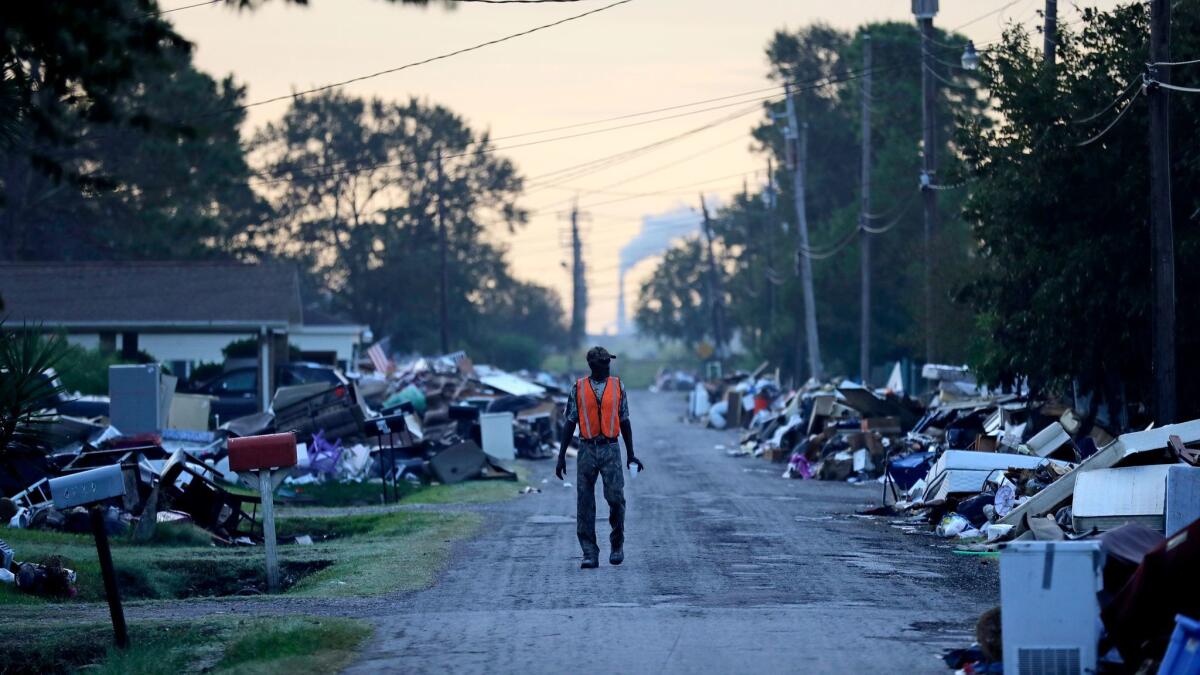Hurricanes slowed demand for travel in the U.S., study finds

- Share via
After several years of surging demand for travel in the U.S., overall travel volume grew more slowly in September when a large swath of the country was battered by two massive hurricanes.
Travel volume within and to the U.S. increased 1.4% in September compared with the same month last year, according to an analysis released Tuesday by the U.S. Travel Assn., the trade group for the nation’s travel industry. By comparison, travel grew by 3.6% in August.
The report said travel volume was affected in August and September by Hurricanes Harvey and Irma, which struck Florida, Texas, Louisiana, Puerto Rico and the Virgin Islands.
For the last 93 straight months, the U.S. Travel Assn. has reported growing travel volume — covering trips to or within the U.S. involving a hotel stay or air travel. Industry experts have attributed the growth to a healthy economy, strong consumer confidence and a surge in international travel to the country, primarily from Asia and South America.
“Pretty much every challenge you can imagine — both natural and man-made — has been thrown at travel this year, and yet this industry continues to do far more than its share for export and domestic job growth,” Roger Dow, president of the association, said in a statement.
International travel has grown slower than domestic travel in the past year, which some industry experts attribute to President Trump’s proposed ban on travel from several majority-Muslim countries and his harsh rhetoric toward Mexico.
“We continue to urge the Trump administration to make clear that new security measures are squarely aimed at bad actors, while legitimate business and leisure travelers are as welcome as ever in the United States,” Dow said.
To read more about the travel and tourism industries, follow @hugomartin on Twitter.
More to Read
Inside the business of entertainment
The Wide Shot brings you news, analysis and insights on everything from streaming wars to production — and what it all means for the future.
You may occasionally receive promotional content from the Los Angeles Times.











